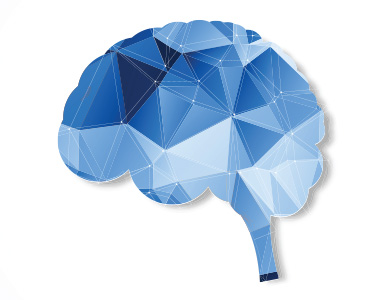Brain Imaging
 Recent advances in medical imaging technology allow the measurement of brain activity
of the intact, living human brain. Faculty at U-M Biostatistics works closely with
researchers throughout the university to study normal brain function and how diseased
patients differ from normals. For example, investigators in U-M Psychology use Functional
Magnetic Resonance Imaging (fMRI) to identify brain regions responsible for working
memory, the short-term memory used to retain, for example, a grocery list. They are
also using Positron Emission Tomography (PET) and fMRI to study schizophrenic patients,
to understand how their reactions to emotionally provocative images differ from that
of normal controls. They collaborate with the Center for Human Growth and Development
to use Electroencephalography (EEG) to examine how environmental exposure and nutritional
deficiency affect the development of human memory in early life time. The statistical
methods applied in this area are computationally intensive and include Bayesian and
massively univariate classical approaches.
Recent advances in medical imaging technology allow the measurement of brain activity
of the intact, living human brain. Faculty at U-M Biostatistics works closely with
researchers throughout the university to study normal brain function and how diseased
patients differ from normals. For example, investigators in U-M Psychology use Functional
Magnetic Resonance Imaging (fMRI) to identify brain regions responsible for working
memory, the short-term memory used to retain, for example, a grocery list. They are
also using Positron Emission Tomography (PET) and fMRI to study schizophrenic patients,
to understand how their reactions to emotionally provocative images differ from that
of normal controls. They collaborate with the Center for Human Growth and Development
to use Electroencephalography (EEG) to examine how environmental exposure and nutritional
deficiency affect the development of human memory in early life time. The statistical
methods applied in this area are computationally intensive and include Bayesian and
massively univariate classical approaches.
Faculty: V. Baladandayuthapani, Y. Li, J. Kang, P. Song
Links: UM Radiology, UM General Clinical Research Center, Rogel Cancer Center
